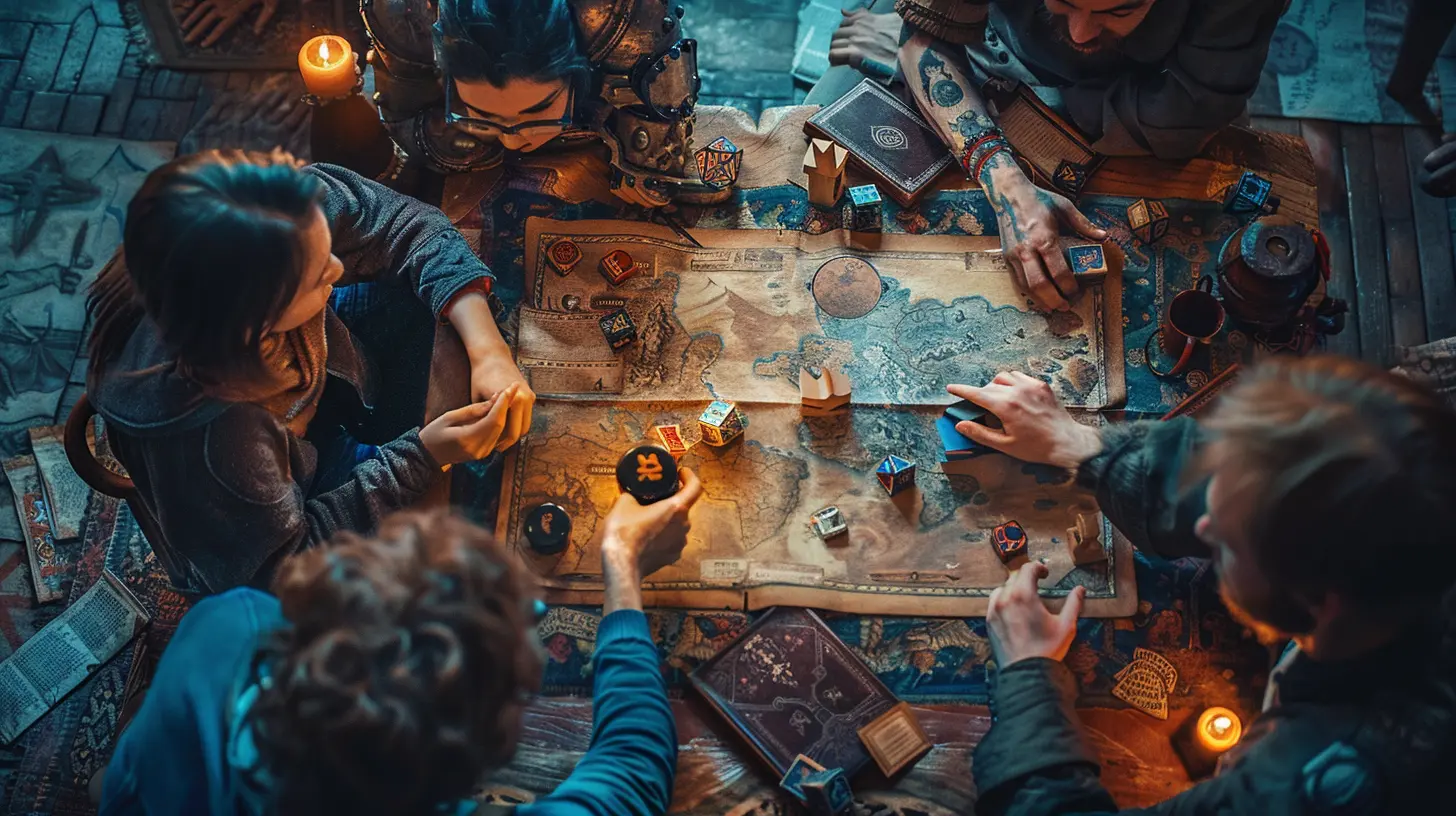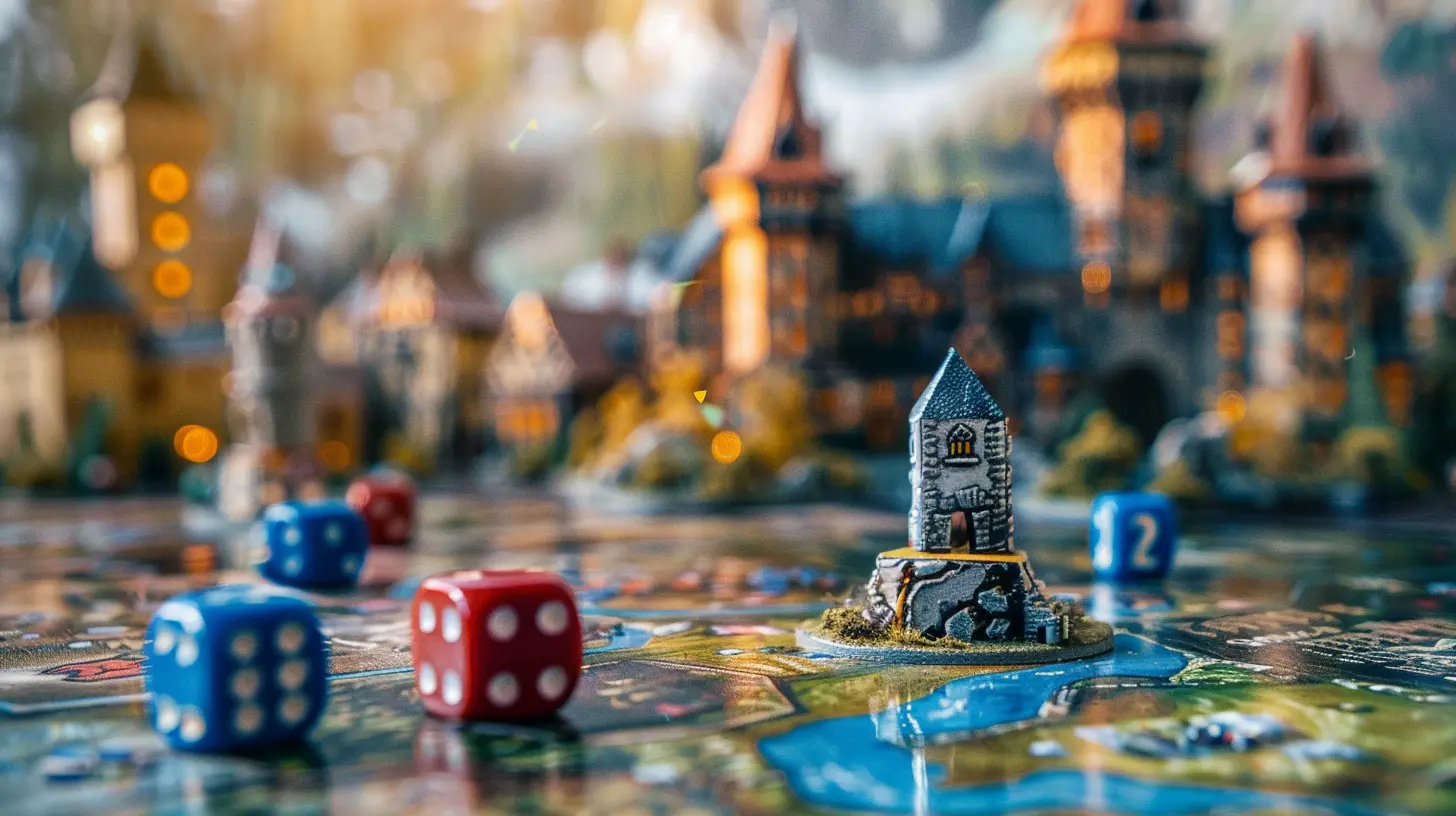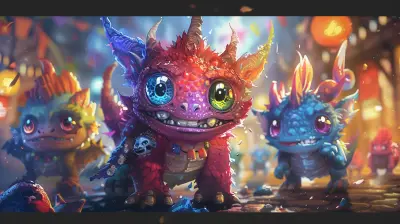The Rise of Storytelling in Tabletop Games
27 September 2025
Tabletop games aren't just about rolling dice and moving pieces on a board anymore. Over the past decade, we've witnessed something extraordinary: a renaissance of storytelling in tabletop gaming. What was once a niche corner of board games has now become the heart and soul of the entire industry. Whether you're commanding a pirate ship in uncharted waters, uncovering ancient mysteries in a haunted mansion, or leading a rebellion against an oppressive empire, today's tabletop games are all about one thing—telling a great story.
But how did this happen? And why are we so obsessed with narrative-driven games? Let's dive into the world of tabletop storytelling and uncover what makes it so captivating. 
A Journey from Monotony to Masterpiece
Let’s be honest—classic board games we grew up with (no offense, Monopoly) weren’t exactly dripping with narrative depth. Sure, they were fun in their own right, but they lacked that emotional punch. Winning or losing didn’t necessarily stir your soul. Those games were more about mechanics than meaning.Fast-forward to today, and the shift is monumental. Modern tabletop games, from Dungeons & Dragons to Gloomhaven, are designed to immerse players in epic stories. The rules and mechanics? They’ve become tools to serve the narrative, not the other way around. The goal isn’t just to win; it’s to experience something unforgettable. 
Why Storytelling?
But what’s driving this hunger for storytelling in games? Why do we suddenly crave drama, adventure, and a sense of purpose? The answer lies in our fundamental need for connection.Humans are wired for stories—it’s how we make sense of the world. Think about it: from bedtime tales as kids to binge-worthy Netflix series as adults, stories are how we relate, learn, and feel. Tabletop gaming taps into that same primal need but adds an interactive twist. Instead of just listening to or watching a story, you live it.
Imagine it: you’re not just reading about a hero braving the odds—you are that hero. The choices you make, the risks you take, the struggles you overcome—they all become part of a shared experience that’s uniquely yours.
Escaping Mundanity
Let’s face it: real life can get kind of...boring. Bills, meetings, traffic—it’s a grind. Story-driven tabletop games offer a much-needed escape. They transport us to fantastical realms where anything is possible.In a world bogged down by screens and social media, the tactile experience of sitting around a table with friends, immersed in a collaborative story, feels almost revolutionary. It’s like taking a mini vacation for your brain.
Plus, storytelling games let you be someone completely different. Want to be a cunning rogue with a dark past? Go for it. A fearless captain exploring forgotten galaxies? The table is yours. It’s role-playing at its finest, and there’s something undeniably magical about that. 
The Marriage of Story and Gameplay
Here’s the kicker: storytelling in tabletop games isn’t just about tossing in some fancy lore and calling it a day. The best games weave story and gameplay together seamlessly.Take Dungeons & Dragons, arguably the granddaddy of narrative-driven gaming. It doesn’t spoon-feed you a pre-written story. Instead, it gives you the tools to craft your own. Every die roll, every decision, every encounter builds on the world you and your friends are shaping together. It’s storytelling in real-time—and no two games are ever the same.
Or consider Gloomhaven, a game lauded for its sprawling narrative. It’s not just about battling monsters; it’s about the choices you make along the way. Every action has consequences, weaving a web of storylines that keep you hooked for months (or years, if your group is anything like mine).
Even lighter games like Betrayal at House on the Hill or Pandemic: Legacy integrate narratives that evolve as you play. One moment you’re exploring a haunted mansion, and the next, you’re betrayed by a fellow player. The suspense? Off the charts.
The Rise of Legacy Games
Speaking of Pandemic: Legacy, let’s talk about the phenomenon of legacy games. These bad boys have revolutionized storytelling in tabletop gaming.In a legacy game, the choices you make aren’t confined to a single session—they carry over between games. You might tear up cards, write on the board, or unlock hidden components. Basically, the game world evolves based on your actions.
It’s like binge-watching a TV series but way more interactive. Legacy games make every decision feel weighty and meaningful, which, let’s be honest, is what storytelling is all about. 
The Role of Technology
You might think storytelling in tabletop games is all analog charm, but technology has swooped in to amplify the experience.Apps, for instance, are becoming a major part of modern board games. Games like Mansions of Madness use companion apps to manage NPCs, narrate events, and keep track of complex storylines. This frees up players to focus on the narrative without getting bogged down by rules.
And then there’s AR and VR. While still in its infancy, imagine the possibilities. Picture donning a VR headset to explore a dungeon with your friends in real-time or watching your tabletop map spring to life in 3D. The future is bright—and it’s full of even more immersive storytelling potential.
The Social Connection
Tabletop storytelling isn’t just about the game; it’s about the people around the table. Collaborative storytelling fosters a sense of togetherness that’s hard to replicate anywhere else. Each player contributes to the narrative, creating a shared experience that strengthens bonds and builds memories.Even laughter and heartbreak come into play. One minute you’re cracking jokes about failing miserably to disarm a trap; the next, you’re emotionally invested in saving a fictional kingdom. It’s a rollercoaster, and everyone’s along for the ride.
Why This Matters for the Industry
The rise of storytelling in tabletop games isn’t just a passing trend—it’s a paradigm shift. It’s drawn in new players who might not have cared about traditional games and given designers a fresh canvas to innovate on.Crowdfunding platforms like Kickstarter have exploded with story-driven games, raising millions of dollars because people are hungry for immersive experiences. The market is booming, and it’s all thanks to this storytelling revolution.
And let’s not ignore the representation factor. Storytelling games have created space for diverse voices and perspectives. From queer romances to non-Western mythologies, the narratives being told today are more inclusive than ever—and that’s a win for everyone.
So… Why Does It Matter to You?
At the end of the day, it’s not just about the games. It’s about the moments. The nights spent laughing until your stomach hurts, the debates over what to do next, and the epic stories that you’ll be retelling for years.If you’ve never dabbled in narrative-driven tabletop games, now’s the time to jump in. Grab some friends, find a game that speaks to you, and lose yourself in a world of endless possibilities. Trust me—you won’t regret it.
all images in this post were generated using AI tools
Category:
Tabletop GamesAuthor:

Lana Johnson
Discussion
rate this article
1 comments
Oren McQuade
This article perfectly captures the growing importance of storytelling in tabletop games. As players seek deeper narratives, game designers are responding with innovative mechanics and immersive worlds. It's exciting to see how this trend elevates the player experience, making each session not just a game, but a shared adventure.
October 13, 2025 at 3:49 AM

Lana Johnson
Thank you! I'm glad you found the article resonant. It's inspiring to see how storytelling is enhancing the tabletop experience for both players and designers alike.


